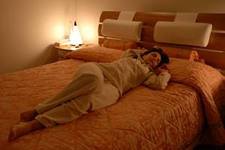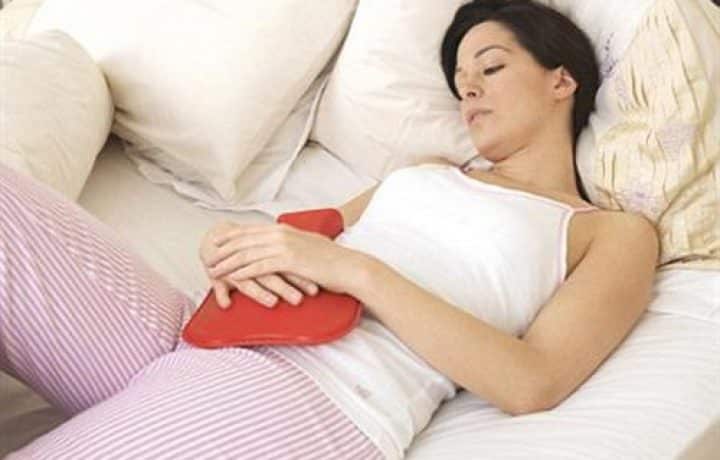As we age, we are more likely to have problems sleeping. Sleep problems make us feel tired the next day, and they may predispose us to changes in mood, memory, cognitive function and disease states.
Women are living longer and will spend perhaps a third of their lives post-menopause. However, longevity without maximized quality of life is not enough. I research sleep problems during perimenopause and how hormone replacement therapy affects mood, memory and cognitive function. As an often sleep-deprived physician and mother, I can attest to decreased patience with my family, and sometimes even forgetfulness.
PAGE CONTENTS
Incontinence and Sleep

Behavior modification, such as limiting fluid intake just before bedtime, may help decrease nighttime urinating in some patients. While it is important to consume sufficient liquids each day, modifying when you take them may help. For example, if you typically have a cup of herbal tea before bedtime and wake up needing to urinate, cut back on your bedtime fluid consumption.
Exercise-Induced Insomnia?
While regular exercise may help some people to sleep better, the timing of exercise is important. Try to avoid exercising very close to bedtime. Ideally, exercise should be done about six hours before bedtime.
Alcoholic Nightcaps?
While alcohol may help to bring on sleep secondary because it slows down brain activity, it actually may harm one’s total overnight sleep. It may cause nighttime awakenings and nightmares. Some may even experience morning headaches. Therefore, alcohol consumption, like exercise, should be done about six hours before bedtime.
Bedtime Snack?
Unlike a heavy meal, which can adversely affect one’s ability to fall asleep or stay asleep, a light bedtime snack may help. Of course, try to avoid spicy snacks or other snacks that can cause indigestion.
